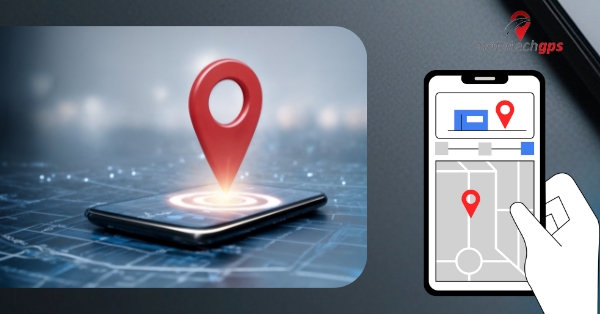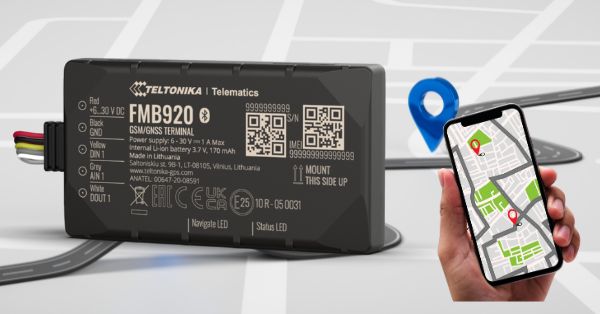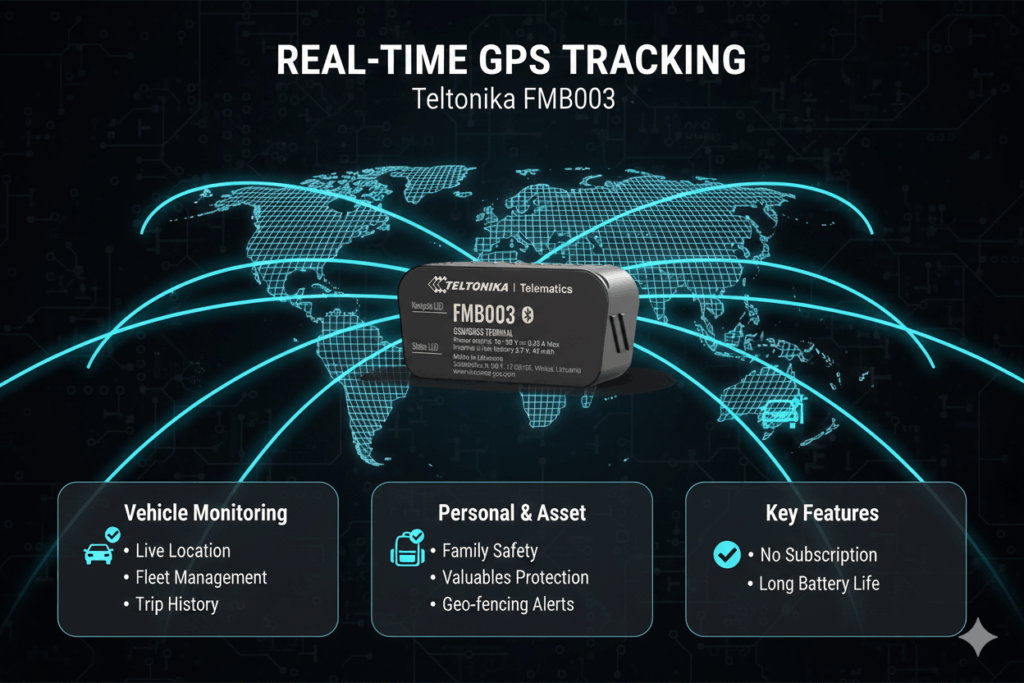The Ultimate Guide to Choosing the Best GPS Trackers for Your Needs
GPS trackers have changed the way we keep an eye on and safeguard our important belongings, loved ones, and vehicles. These small devices use satellite technology to provide real-time location information, giving us peace of mind and better security in our increasingly connected world.
GPS trackers are used for various purposes in different industries:
- Personal Safety: Keep track of old person or children
- Pet Protection: Monitor your furry friends’ whereabouts
- Vehicle Security: Track cars, trucks, and fleet vehicles
- Asset Management: Protect valuable equipment and inventory
- Adventure Sports: Stay connected during outdoor activities
There are many options available in the market – from hidden GPS trackers that discreetly monitor vehicles to specialized trackers for old person and pets. Each device has its own features, ranging from basic location tracking to advanced functions like geofencing and emergency alerts.
This comprehensive guide covers everything you need to know about GPS trackers. You’ll discover the different types available, important features to consider, and how to choose the ideal tracker for your specific needs.
Understanding Different Types of GPS Trackers
GPS trackers come in distinct varieties, each designed to meet specific tracking needs. Your choice depends on factors like coverage requirements, battery life expectations, and intended use cases.
1. Cellular GPS Trackers
Cellular GPS trackers leverage existing cellular networks to transmit location data in real-time. These devices connect to the same networks your phone uses, making them reliable in urban and suburban areas.
Key Features:
- Real-time location updates every 5-60 seconds
- Built-in geofencing capabilities
- Speed monitoring and alerts
- Historical route playback
- Mobile app integration
Subscription Plans:
- Monthly fees range from $5 to $25
- Data plans typically include unlimited tracking
- No long-term contracts required
- Multiple device discounts available
Ideal Applications:
- Vehicle fleet management
- Personal car tracking
- Asset monitoring in urban areas
- Family safety tracking
- Pet location monitoring
The cellular tracking technology excels in populated areas where cellular coverage is strong. You’ll find these trackers particularly useful for:
- Business Use: Track delivery vehicles, monitor driver behavior, optimize routes using advanced trucking software that can also help companies save on fuel costs through route optimization,
- Personal Safety: Keep tabs on old family members or children
- Asset Protection: Monitor valuable equipment or vehicles
- Pet Safety: Track your pets’ location in real-time
Battery Performance:
- Rechargeable batteries last 5-7 days
- Hardwired options available for continuous power
- Power-saving modes extend battery life
- Low battery alerts via mobile app
These devices typically require minimal setup – just activate your subscription, charge the device, and start tracking. The companion mobile apps offer user-friendly interfaces for monitoring locations, setting up geofences, and receiving alerts.
2. Non-Cellular (Satellite) GPS Trackers
Satellite GPS trackers are the best option when cellular coverage is not available. These durable devices connect directly to satellite networks, making them perfect for:
- Remote wilderness expeditions
- Marine navigation
- Off-grid adventures
- International travel
- High-altitude tracking
- Desert expeditions
The built-in satellite connectivity allows these trackers to provide location updates regardless of cellular infrastructure. You’ll receive precise positioning information even in the most remote areas, such as dense forests or open oceans.
Key Features:
- Global coverage across all continents
- SOS emergency alert capabilities
- Weather-resistant construction
- Extended battery life (2-4 weeks)
- Real-time location updates
- Two-way communication options
The advanced features of satellite GPS trackers come with higher initial costs, usually between $200 and $500. Monthly subscription fees are also generally higher, averaging $15 to $50 depending on the service plan.
These devices are especially useful for:
- Search and rescue operations
- Wildlife tracking
- Remote workforce safety
- Adventure sports enthusiasts
- Yacht and boat monitoring
- Military applications
The tough design and dependable performance make satellite GPS trackers the top choice for users who need reliable tracking in difficult environments.
3. Bluetooth GPS Trackers
Bluetooth GPS trackers offer a cost-effective solution for short-range tracking needs. These compact devices create a direct connection with your smartphone through Bluetooth technology, enabling you to locate items within a range of 30-100 feet.
Key Features:
- Compact size perfect for keys, wallets, and small valuables
- Battery life spanning several months to a year
- No monthly subscription fees
- Simple pairing process with smartphones
- Community finding networks for lost items
Range and Limitations:
- Effective tracking distance: 30-100 feet
- Requires proximity to paired smartphone
- Limited functionality in remote areas
- No real-time GPS tracking capabilities
The tracking process relies on your smartphone’s Bluetooth connection to detect the device’s signal strength. When an item goes missing, you can use the companion app to trigger an audible alert or check the last known location on a map.
Many Bluetooth trackers incorporate crowd-finding networks – when other users’ phones detect your lost device, you receive an anonymous location update. This feature expands the tracking possibilities beyond the standard Bluetooth range.
These devices typically cost between $20-$50, making them an accessible option for basic tracking needs. The absence of subscription fees and minimal maintenance requirements add to their appeal for everyday use.
Exploring Different Form Factors of GPS Trackers
GPS trackers come in distinct physical designs to suit specific tracking needs. The form factor you choose impacts installation, power supply, and placement options.
1. OBD-II Plug-in Devices (OBD-II Tracker)
OBD-II trackers plug directly into your vehicle’s On-Board Diagnostics (OBD-II) port, typically located under the dashboard. These compact devices offer:
- Instant power supply – No batteries needed, draws power from the vehicle
- Quick installation – Simply plug and play, no wiring required
- Advanced vehicle data – Access to engine diagnostics, fuel consumption, and driving patterns
- Reliable connectivity – Stable power connection ensures uninterrupted tracking
Where to Find the OBD-II Port
The OBD-II port location varies by vehicle make and model:
- American cars (1996 and newer): Within 2 feet of the steering wheel
- European vehicles: Near the center console or under the glove compartment
- Asian manufacturers: Below the steering wheel or behind small access panels
Who Can Benefit from OBD-II Trackers?
These trackers suit:
- Fleet management
- Company vehicles
- Personal car tracking
- Teen driver monitoring
- Rideshare vehicles
Pro tip: Check your vehicle’s OBD-II port location before purchasing to ensure easy access and discreet placement of the tracker.
Additional Features Enabled by OBD-II Connection
The direct connection to your vehicle’s computer system enables additional features like:
- Engine fault code readings
- Battery voltage monitoring
- Fuel efficiency tracking
- Maintenance alerts
- Engine RPM data
2. Battery-Powered Units (Battery-powered Tracker)
Battery-powered GPS trackers offer unmatched flexibility in tracking diverse assets. These compact devices fit discreetly in bags, vehicles, or valuable equipment, making them ideal for personal tracking needs.
Key advantages of battery-powered trackers:
- Portable design allows quick transfers between different items
- No hardwiring required – perfect for rental vehicles
- Magnetic cases available for secure vehicle attachment
- Weatherproof options for outdoor asset tracking
The battery life varies based on usage patterns:
- Standard tracking: 1-2 weeks
- Extended battery models: 2-6 months
- Sleep mode enabled: Up to 1 year
You’ll find these trackers particularly useful for:
- Monitoring valuable shipments
- Tracking personal vehicles
- Protecting construction equipment
- Keeping tabs on outdoor recreational gear
The latest models include motion sensors that preserve battery life by activating only when movement is detected. Additionally, advanced options like the Digital Matter Yabby Edge NB-IOT asset tracking sensor are now available, offering even more features and flexibility in asset tracking.
Key Features to Look For When Choosing a GPS Tracker
A reliable GPS tracker needs specific features to deliver optimal performance for your tracking needs. Here’s what you should prioritize:
1. Real-Time Location Updates
- Accurate location data within 5-10 meters
- Update intervals from 5 seconds to 5 minutes
- Live tracking through dedicated mobile apps
- Historical route playback capabilities
2. Geofencing Capabilities
- Custom virtual boundaries
- Instant notifications when boundaries are crossed
- Multiple zone configurations
- Radius adjustments from 100 feet to several miles
3. Essential Safety Features
- SOS emergency buttons
- Speed limit alerts
- Low battery warnings
- Tampering notifications
4. Power Management
- Extended battery life options
- Power-saving modes
- Battery level indicators
- Multiple charging methods
5. Data Security
- End-to-end encryption
- Secure cloud storage
- Private access controls
- Data backup options
Your chosen GPS tracker should match your specific requirements, whether you’re tracking a vehicle, monitoring children’s safety, or securing valuable assets. The right combination of these features ensures reliable tracking performance and peace of mind.
Popular Brands Offering Quality GPS Trackers in 2023
The GPS tracker market features several standout brands delivering exceptional tracking solutions:
1. Family1st
Family1st specializes in user-friendly GPS tracking devices with advanced features like real-time location updates and customizable alerts. Their trackers excel in family safety applications, offering intuitive mobile apps and responsive customer support.
2. Spytec
Spytec delivers professional-grade GPS tracking solutions with robust reporting capabilities. Their GL300 series provides extended battery life and weatherproof construction, making it ideal for both personal and business use.
3. Tracki
Tracki stands out with its compact, lightweight GPS trackers that combine global coverage with affordable monthly plans. Their devices include built-in magnets and waterproof cases, perfect for vehicle and asset tracking.
4. Bouncie
Bouncie focuses on connected car solutions through OBD-II devices. Their trackers provide detailed vehicle diagnostics, driving insights, and maintenance alerts alongside standard GPS tracking features.
Each brand offers unique pricing structures and subscription plans:
- Family1st: $25-35 monthly
- Spytec: $20-30 monthly
- Tracki: $15-20 monthly
- Bouncie: $8-12 monthly
Conclusion
Choosing the right GPS tracker requires careful consideration of your specific tracking needs. The perfect device balances features, cost, and functionality aligned with your unique requirements.
Your ideal GPS tracker depends on these key factors:
- Usage Environment – urban vs remote locations
- Required Range – local or global tracking
- Budget – device cost and subscription fees
- Battery Life – charging frequency tolerance
- Essential Features – real-time updates, geofencing, alerts
Remember to research thoroughly and test devices when possible. Many GPS tracker providers offer trial periods or money-back guarantees. For complex tracking needs or large-scale implementations, consulting with tracking solution experts can help you make an informed decision tailored to your specific situation.
FAQs (Frequently Asked Questions)
What are the main types of GPS trackers and their differences?
The main types of GPS trackers include Cellular GPS Trackers, Non-Cellular (Satellite) GPS Trackers, and Bluetooth GPS Trackers. Cellular trackers offer real-time tracking with geofencing via cellular networks and affordable subscription fees. Satellite trackers provide global coverage and emergency alerts, ideal for remote areas without cellular service but come at higher costs. Bluetooth trackers work within a short range to locate lost items with low cost and easy setup but limited range.
How do OBD-II plug-in GPS trackers work and what are their benefits?
OBD-II plug-in GPS trackers connect directly to a vehicle’s OBD-II port, allowing easy installation without complex wiring. They provide real-time tracking of the vehicle’s location and diagnostics data. Benefits include hassle-free setup, continuous power supply from the vehicle, and detailed vehicle monitoring making them ideal for car tracking.
What key features should I look for when choosing a GPS tracker?
Important features to consider include accurate real-time tracking capability, customizable geofencing alerts to monitor entry or exit from designated areas, long battery life or reliable power sources, ease of installation, and compatibility with your specific use case such as personal safety, pet tracking, or vehicle monitoring.
Which brands are recognized for offering quality GPS trackers in 2023?
Leading brands known for reliable and feature-rich GPS trackers in 2023 include Family1st, Spytec, Tracki, and Bouncie. These brands offer a variety of devices catering to different needs such as personal tracking, pet monitoring, vehicle tracking with real-time updates and user-friendly apps.
Can I use a GPS tracker without monthly subscription fees?
Yes, some GPS trackers offer options without monthly fees; however, these may have limitations such as reduced real-time tracking capabilities or reliance on Bluetooth technology with limited range. Cellular-based trackers typically require subscription plans for continuous data connectivity and advanced features like geofencing.
What are the best GPS tracker options for old person and pets?
For old person personal GPS trackers with reliable real-time location updates and emergency alert features are recommended to ensure safety. For pets, small battery-powered units designed for versatile placement on collars provide efficient tracking. Choosing devices from reputable brands with good battery life and user-friendly apps enhances usability for these purposes.




